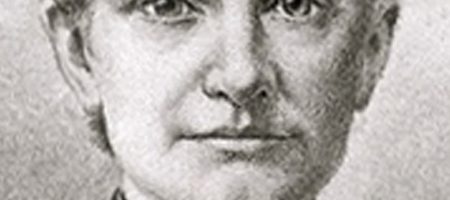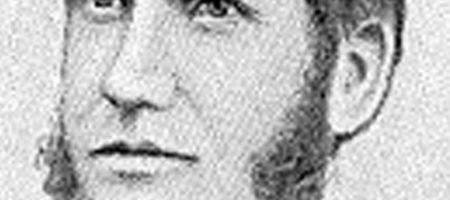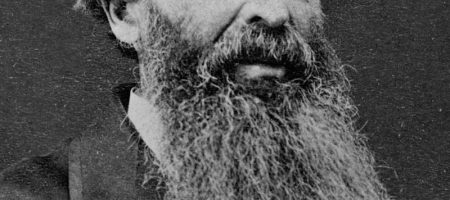Narcissa April 1846
Miss Jane A. Prentiss,
Cuba, New York.
WAIILATPU
April 2, 1846.
My Dear Jane:
The season for sending letters has nearly arrived, and I begin to feel as if I must be about writing to some of my friends or they will complain of my negligence or forgetfulness. I believe I have written very few letters since the doctor returned. My health has been so poor, and my family has increased so rapidly, that it has been impossible. You will be astonished to know that we have eleven children in our family, and not one of them our own by birth, but so it is. Seven orphans were brought to our door in October, 1844, whose parents both died on the way to this country. Destitute and friendless, there was no other alternative-we must take them in or they must perish. The youngest was an infant five months old-born on the way-nearly famished and but just alive; the eldest was 13-two boys and five girls; the boys were the oldest. The eldest daughter was lying with a broken leg by the side of her parents as they were dying, one after the other. They were an afflicted and distressed family in the journey, and when the children arrived here they were in a miserable condition. You can better imagine than I can describe my feelings under those circumstances. Weak and feeble as I was, in an Indian country without the possibility of obtaining help, to have so many helpless children cast upon our arms at once, rolled a burden upon me insupportable. Nothing could reconcile me to it but the thought that it was the Lord that brought them here, and He would give me grace and strength so to discharge my duty to them as to be acceptable in His sight. The Lord at the same time sent us a very good young man, originally from New York, whom we employed to teach an English school. He was of great assistance to me in bringing the children into good habits and advancing them in reading, as well as in the government of them. He was not pious when he entered the family, but the influence of being once more in a Christian family, called to his mind the feeling and many prayers and tears of a pious mother and deceased father for him, and overwhelmed him. He went to a retired spot just below the house on the river side and wept bitterly and poured out his soul to God in prayer and consecrated himself to His service. He immediately engaged in religious duty and was my associate in instructing and labouring with the children in Sabbath school and otherwise. At the annual meeting of our mission he united with the mission church. He is now in the Willamette teaching in the Oregon Institute. This was the winter of 1844 and 1845.
I received no letters from you or Edward that fall and thought it surprising that in all that great company you could not have sent us a single letter. I think I wrote you in the spring by Overton’s party; hope you have got it by this time. It seems to me the immigration might bring me letters from my friends every year. I have not had a letter from mother in a great while, and I most envy you your privilege and wonder why you did not send it to me, so that I might have the reading also; the last from father was when doctor returned. I have just been writing to Edward how much we wish to see you both here and hope you will three of you come; there is work enough for you to do. We could give you a school all the time-an English school-our children and the children of the other families of the mission and perhaps some others; also, and Indian school some part of the time.
Dearest Jane, you know not what special tokens of our dear Redeemer’s love and mercy we have been receiving the last three months. Last Saturday, however, was a day of all days never to be forgotten by me, while I live. And can you think what it was, beloved sister? It was this: The triumphant death of a dear brother in Christ. I wish I could enter into particulars and lay out the whole scene before you so that you could see and feel it as I do and those who were witnesses of his glorious departure. The individual was Joseph L. Finley of Illinois, who came over with the last immigration for his health; his disease was consumption, and deep-seated when he left the states. He was advised to stop here for the winter because it would be so unfavourable for invalids in the lower country in the winter. You will wonder how I could have the care of him in my feeble state of health and large family. He kept about until about the middle of January and during that time boarded with a cousin that stopped for the winter; when he became confined to his room, I opened my bedroom to him, as there was no other on the premises suitable for a sick man, and a cousin, a young woman, came and took care of him until the families left for the Willamette, the first of March. Mr. Rogers, our school teacher, had the principal care of him, as also during the journey. He was without a well-grounded hope when he came here, and the Lord was pleased to bless our efforts for his salvation. He afterwards desired to unite with our church, and accordingly did Feb. 26th, in company with Mr. Rogers, who had formerly been a member of the Seceders. Being in my family, I was very much with him and read and prayed with him almost daily towards the close of his life. He grew in grace steadily and felt that he was over-privileged to die in such a quiet place, where he could have the society of those who cared for his soul. Dear sister-he was a stranger, moneyless and friendless, in one sense-no relative who felt the responsibility of caring for him. He was just such a one as the Saviour says, “Inasmuch as ye have done it unto the least of these, my brethren, ye have done it unto me.”
Mr. Finley was nearly 32 years of age-was never married.
We felt, that is Brother Rogers and myself, that we were abundantly rewarded for all the care and labour we had bestowed upon him. It was such a glorious sight, especially to Brother Spaulding and Brother Rogers, who had never seen the like before. Husband and myself saw much the same in Mrs. Satterlee, at Liberty, when we were coming to this country. Let us praise the Lord, dear sister, and live so that our death may be as triumphantly glorious.
Affectionately your sister,
NARCISSA WHITMAN.
Mr. Edward W. Prentiss,
Quincy, Illinois.
WAIILATPU
April 13th, 1846.
My Dear Harriet:
I believe I have not written you since the Lord brought this orphan family under our care. How could I, for I have been so unwell and had this increase of care upon my mind, that I have written to no one in the States, as I recollect. I find the labor greater in doing for so many, especially in instructing them-where they come in all at once-than if they had come along by degrees and had received a start in their education, one before the other; whereas all their minds appear to be alike uninstructed, especially in the great truths of Christianity.
I would like to know how you and Clarissa get along in unfolding the minds of your little ones. I hope you both feel that the immortal part is of the greatest moment in all your strivings for them, and to educate the physical in such a way as to give the immortal part the utmost vigor and energy possible.
I used to think mother was the best hand to take care of babies I ever saw, but I believe, or we have the vanity to think, we have improved upon her plan. That you may see how we manage with our children, I will give you a specimen of our habits with them and we feel them important, too, especially that they may grow up healthy and strong. Take my baby, as an example: in October, 1844, she arrived here in the hands of an old filthy woman, sick, emaciated and but just alive. She was born some where on the Platte river in the first part of the journey, on the last day of May. Her mother died on the 25th of September. She was five months old when she was brought here-had suffered for the want of proper nourishment until she was nearly starved. The old woman did the best she could, but she was in distressed circumstances herself, and a wicked, disobedient family around her to see to.
Husband thought we could get along with all but the baby-he did not see how we could take that; but I felt that if I must take any, I wanted her as a charm to bind the rest to me. So we took her, a poor distressed little object, not larger than a babe three weeks old. Had she been taken past at this late season, death would have been her portion, and that in a few days. The first thing I did for her was to give her some milk and put her in the cradle. She drank a gill, she was so hungry, but soon cleared herself of it by vomiting and purging. I next had a pail of warm water and put her in it, gave her a thorough cleansing with soap and water, and put on some clean clothes;-put her in the cradle and she had a fine nap. This I followed every day, washing her thoroughly in tepid water, about the middle of the forenoon.
She soon began to mend, but I was obliged to reduce her milk with a little water, as her stomach was so weak she could not bear it in its full strength.
Now I suppose you think such a child would be very troublesome nights, but it was not so with her; we put her in the cradle and she slept until morning without waking us more than once, and that only for a few of the first nights. Her habits of eating and sleeping were as regular as clock-work. She had a little gill cup which we fed her in; she would take that full every meal, and when done would want no more for a long time. Thus I continued, giving her nothing else but milk, she only required the more until her measure became half a pint. In consequence of the derangement of her digestive powers, which did not recover their healthy tone, she had a day of sickness some time in Dec. when we gave her a little oil and calomel; this restored her completely, and since that time, and even before, she has nothing to do but to grow, and that as fast as possible; she is as large or larger than her next older sister Louisa was when she came here, then nearly three years old. She now lacks a month and a half of being two years old. She is strong, healthy, fleshy, heavy, runs any where she is permitted, talks everything nearly, is full of mischief if I am out of the room. She is energetic and active enough and has a disposition to have her own way, especially with the children, if she is not prevented.
She contended sharply for the mastery with her mother before she was a year old, but she, of course, had to submit. Since then she has been very obedient, but frequently tries the point to see if her parents are steadfast and uniform in their requirements or not. She will obey very well in sight, but loves to get out of sight for the purpose of doing as she pleases. She sings a little, but not nearly as much as Alice C. did when she was of her age. Thus much for my baby, Henrietta Naomi Sager. She had another name when she came here, but the children were anxious to call her after her parents. Her father’s name was Henry and her mother’s name was Naomi-we put them together.
What I call an improvement upon mother’s plan is the daily bathing of children. I take a child as soon as it is born and put it in a washbowl of water and give it a thorough washing with soap. I do this the next day and the next, and so on every day as long as the washbowl will hold it; when it will not, then I get a tub or something larger, and continue to do it until the child is able to be carried to the river or to go itself. Every one of my girls go to the river all summer long for bathing every day before dinner, and they love it so well that they would as soon do without their dinner s without that. In the winter we bathe in a tub once a week at the least. This is our practice as well as the children. I do not know but these are your habits, but if they are not, I should like to have you try them just to see the benefit of them. I never gave Henrietta any food but milk until she was nearly a year-and-a-half old. She never wanted any thing else. I avoid as much as possible giving my children candies, sweetmeats, etc. such as many parents allow their children to indulge in almost all the while; neither do I permit them to eat cakes and pies very often.
It is well to study these things with regard to our children, for it saves many a doctor bill; and another thing with our children, we never give medicine if we can help it. If children complain of the headache, or are sick at the stomach, send them to bed without their supper or other meals; they are sure to get up very soon feeling as well as ever.
My husband says many times when a physician is called to see a patient he finds nothing ails him but eating too much. If he is told this he will be offended, so he is obliged to give him something, when all he needs is to do without a meal or two and to fast a day or two and drink water gruel.
Doubtless you will think this a strange letter, Harriet, but you must take it for what is worth and make the best of it.
We sleep out of doors in the summer a good deal-the boys all summer. This is a fine, healthy climate. I wish you were here to enjoy it with me, and pa and ma, too. We have as happy a family as the world affords. I do not wish to be in a better situation than this.
I never hear as much as I wish about Stephen’s children. I should think Nancy Jane might write her aunt now-tell me something about them.
O, how I wish you were all here. I could find work enough for you all to do; and every winter we have a good school, so that our children are learning as fast as most children in the States.
Harriet, I do want you and that good husband of yours to come here and bring pa and ma. I know you will like it after you get here, if you do not like the journey. There are many of the last immigration that came without their families, that are now going back to bring them as quick as possible, and are only sorry they did not bring them last year. Bring as many girls as you can, but let every young man bring a wife, for he will want one after he gets here, if he never did before. Girls are in good demand for wives. I hope Edward and Jane will come. I have written to them to come. Judson wants to come, too. I hope he will, and many other Christians. Where is Jonas G.? Why does he not come? Poor man, I never can think of him without sorrow.
Love to all, and a kiss for all those little ones.
NARCISSA




